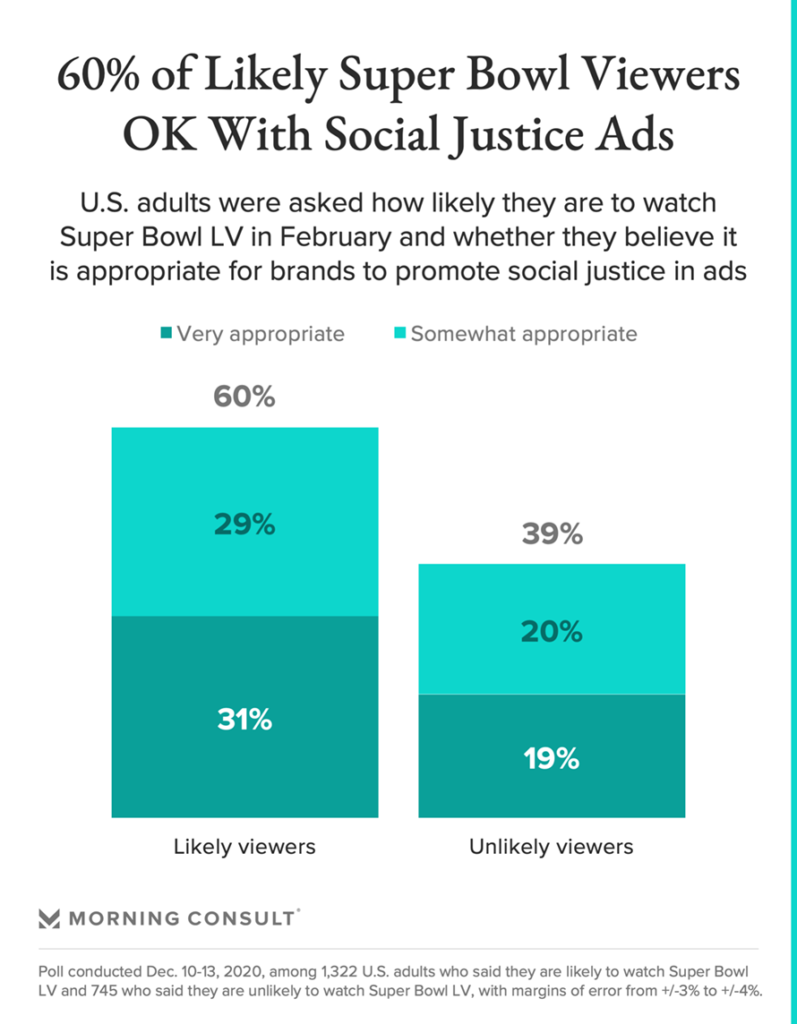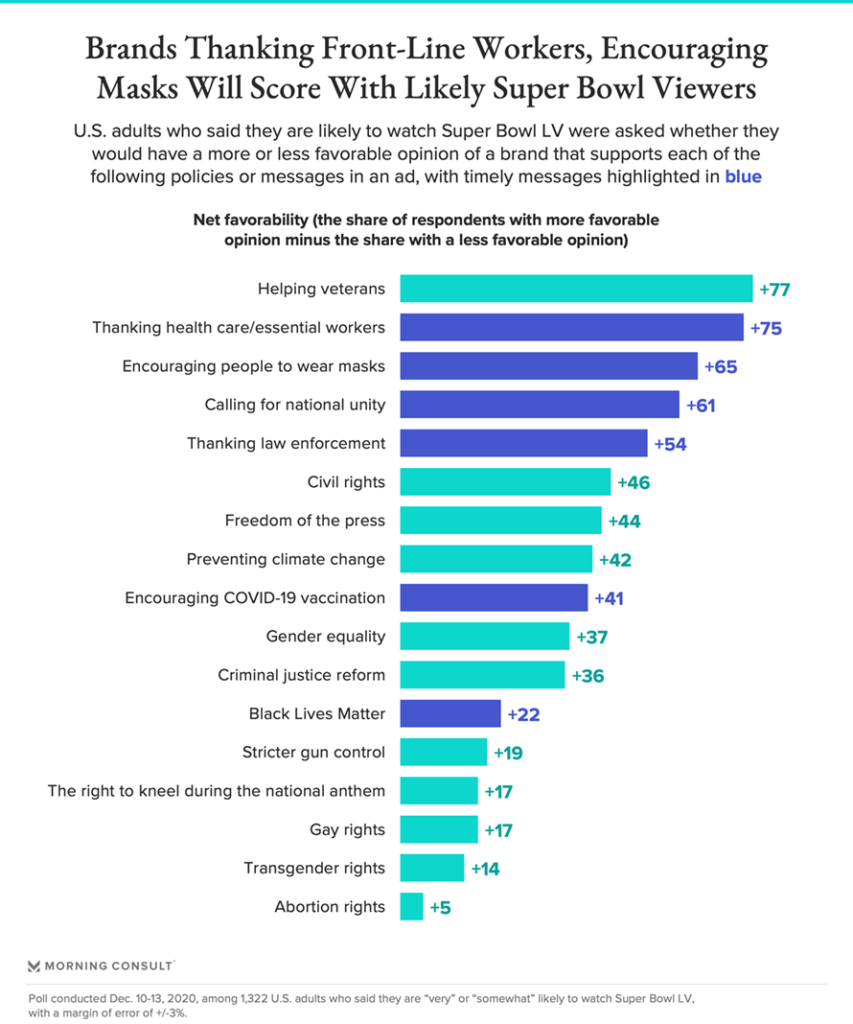2017 is likely considered the watershed moment for brands to take stands in their Super Bowl advertising. The most prominent example was 84 Lumber, a brand that made a bold statement about immigration, seemingly out of nowhere. Airbnb and Coca-Cola promoted diversity and unity, Audi went after the gender pay gap and Kia had a climate message. In the game itself, halftime show star Lady Gaga subverted the performance with a political statement.
Even one of America’s most venerable brands, Budweiser, aired an ad that told the story of how immigrants played a critical role in building the country. Roundly panned by xenophobes (to the tune of #BoycottBudweiser), the brand quickly noted that it was not making a political statement. However, with the political climate, as it was when Trump began his first and only term, the outrage (faux or not) was fait accompli.
Escapism is out, social justice is in
In subsequent years, viewers have been fed a steady diet of comfortable, escapist Super Bowl fare. Last year’s slate of ads, for example, veered far from its 2017 brethren and was a comparatively saccharine exercise in expected commercial entertainment.
But here we are in 2021, and the world is a much different place. Last year alone proved that goalposts of decency, care and humanity in the U.S. were prone to move all over the place. First, with the pandemic, then with the killing of George Floyd and others, centrist thought seems a quaint and antiquated notion.
Toss in last week’s insurrection at the Capitol, and the idea of brands addressing anything political or issues-based seems a fool’s errand, even as CEOs of major companies weighed in.
Yet, December research from data intelligence company Morning Consult paints a different picture. Of those expecting to tune in, 60% of over 1,300 adults likely to watch the Super Bowl said that the game is an appropriate place for brands to promote issues, specifically social justice, in their ads.

“It’s easy for people to think ‘I just want three hours of entertainment on a Sunday night’,” said Drew Train, co-founder and president of purpose-led agency Oberland. “But, for generations, we took the easy way out of everything, and that’s what’s gotten us here. Brands need to use their loudest voice to put a stake in the ground.”
Read the room
According to Michael Serazio, Ph.D., an associate professor in the Boston College department of communication, the Super Bowl is a moment for advertisers to read the room related to culture and the zeitgeist. A few years ago, Serazio and his colleagues did a national survey that found that people didn’t want sports and politics to mix. Yet, more recent research shows that American sports fans are increasingly ok with the two coming together.
“There’s a lot of talk from marketers about brands taking a stand,” said Serazio. “But that is cliche and they’re not really interested in taking a position that could potentially alienate half the country. This is a way for brands to generically feel that they’re part of this intense political moment without actually engaging in complicated, divisive politics. I think that’s what you might see in the Super Bowl.”
Digging deeper, Morning Consult asked respondents about which topics, messages and issues would result in a favorable opinion of a brand. Black Lives Matter ranked low on the list, at No. 12, just below criminal justice reform and above stricter gun control.

https://www.adweek.com/brand-marketing/consumers-are-fine-with-politics-in-super-bowl-ads-but-mass-appeal-matters/

